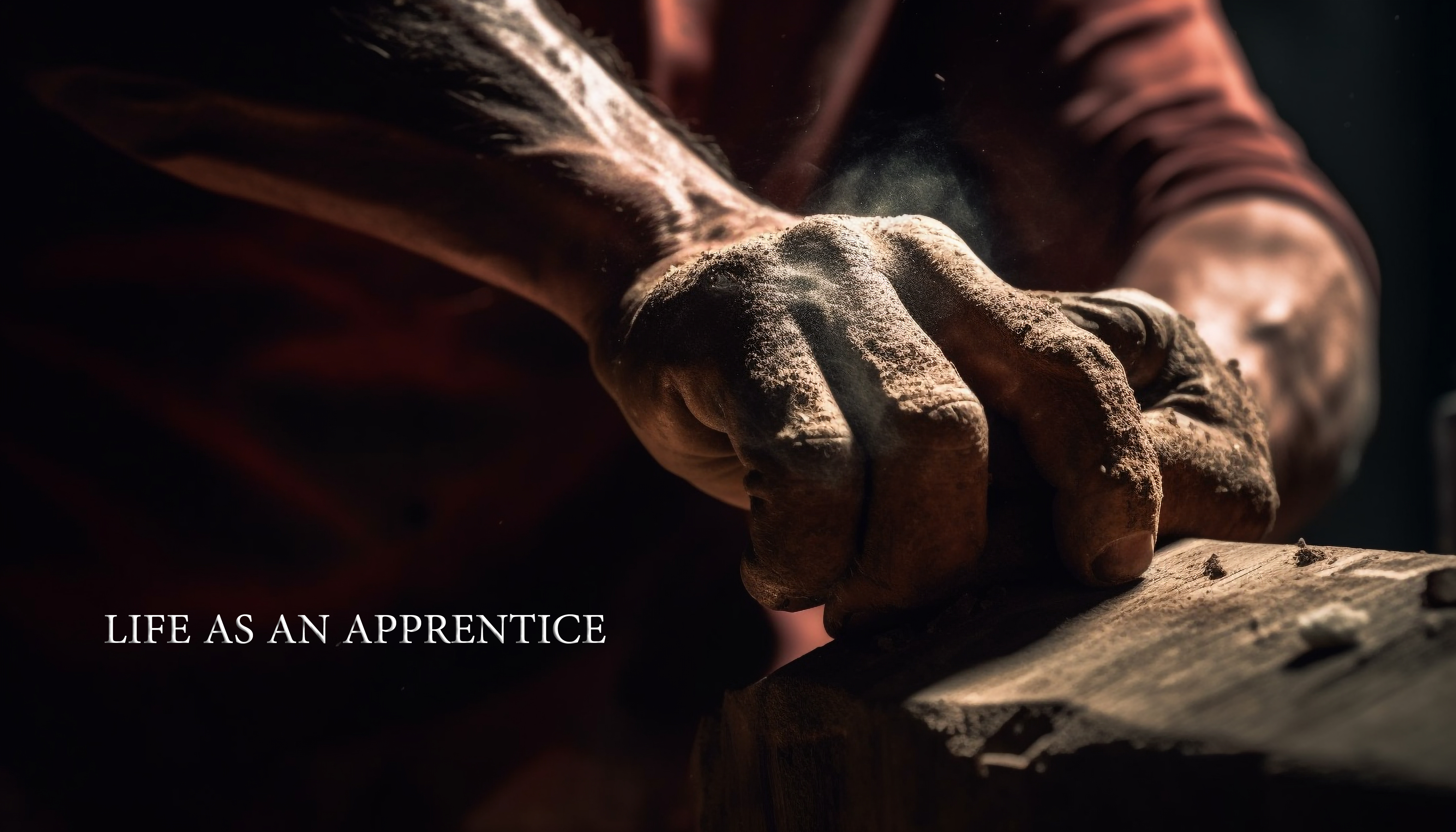I believe it is of the utmost importance on this journey of faith to set realistic expectations. Expectations can be an incredibly powerful force. If your expectations for what the life of a Christian should look like are out of touch with the reality of what spiritual development is actually like, it can serve as a significant hurdle to growth. Because of that, I think unrealistic expectations are a key weapon used by the enemy of our souls. Imagine someone quitting golf in frustration after two weeks because they were expecting they would already be playing like Tiger Woods. Now imagine someone giving up on their faith six months into following Jesus because they were still wrestling with lust or forgiveness issues.
My own story of apprenticeship to Jesus was certainly hindered by unrealistic expectations. I was raised in a nominally religious Catholic family. We attended Mass each week, and I went to CCD classes into adolescence. However, I would not say there was any emphasis on pursuing a relationship with Jesus at that time in our family. I came to an alive faith at age 15 through the ministry of Younglife. One Thursday my Younglife leader, Jerry Maguire (no connection to the movie), picked up my 15-year-old self after track practice in his beat-up 1960s-something red Volkswagen Beetle affectionately known as the Flintstone mobile. It was thusly named because, if you moved the plywood, you could see the road through the floorboards. Jerry took me to McDonald’s where I got a meal and the Gospel was explained to me in a way I never heard it. As it turns out, God’s grace can even be found under the golden arches. Several nights later, as I lay in my bed about to fall asleep, I prayed the simple prayer of, “Jesus, if you want me, I want to be Yours.” I distinctly remember being disappointed the next morning that everything wasn’t different as my Mom and I went through our normal routine of me sleeping through my alarm and her screaming up the steps for me to get up. I don’t know what I expected; I just thought it would all be different. In retrospect, I can see that, in fact, it was all different from that moment to this moment, just not the way I thought it would be.
Unfortunately, I see modern American Christian culture as absolutely awash in unrealistic expectations of what following Jesus means. Some expectations are so lofty as to be more akin to Harry Potteresque magic and are therefore completely unsustainable in real life. Give your heart to Jesus and sit back while Jesus takes care of everything for you while you ride through life in bliss. When that doesn’t happen for us, we regular people get the feeling we must be doing it wrong. Jesus must not love us as much as those other people who appear to have it all together.
On the other extreme are expectations so low as to make no practical demand or difference whatsoever. Jesus just wants you to do the best you can to be the nicest version of yourself you can muster. Jesus is rendered powerless in your life because you never expect to have to go to Him for anything anyway. I generally don’t hear a lot of talk in the Christian community about setting realistic expectations.
So the question is: What are right and healthy expectations? What information, experiences, and relationships should I see along the way to let me know I’m doing it right?
The problem for so many people who set out to follow Jesus early on in their apprenticeship isn’t so much the new skills and habits they have to learn. They are expecting to have to make changes. What can be disorienting for people are the old skills and habits they have to unlearn to move forward.
Have you ever tried to unlearn something you think is important? Now imagine if you have to unlearn something you have believed is a fundamental part of your identity or your way of understanding and navigating the world around you. Unlearning and replacing old belief structures and coping mechanisms would be comparable to trying to replace a whole series of interrelated deeply ingrained lifelong habits.
What if I told you that, for most people, this unlearning process will be the vast majority of the hardest work of your apprenticeship to Jesus? Would that surprise you? Furthermore, my experience and observation is that most of us who are seeking to become more like Jesus make inconsistent, incremental, yet generally upward progress throughout our lifetime. It turns out it takes a great deal of God’s grace mixed with a great deal of the truth and some of our own faith, courage, and surrender to step out of the safety of the old ways (even if those old ways haven’t/aren’t working for us) and into the new ways of life in God’s Kingdom. We are complicated creatures often with layers built upon layers of misguided beliefs and their related habits that need to be demolished and reconstructed. While for a few people the whole structure gets blown up all at once from the bottom and rebuilt quickly, for most of us it seems God takes it off layer by layer, not pushing us to do more than we are ready for.
So it’s reasonable to expect to have to learn some new things, like habits, priorities, and ways of coping and thinking. It’s also reasonable to expect to have to unlearn some old things, like habits, priorities, and ways of coping and thinking. It’s also reasonable to expect this to be a slower process than we would perhaps prefer, full of one-step forward and half-a-step-back days and even seasons. And it’s reasonable to expect to have to work all of this out in the community of faith known as the Church. But that is for another post.
In the meantime – how are your expectations about what it means to be a follower of Jesus? Perhaps a good way to look at this question might be to ask yourself if you have, like Paul, “learned the secret of being content in any and every situation” (Phil 4:12) or if God often disappoints you with the way things work out.
Think about it.
Yours in the journey,
Pastor Tim

